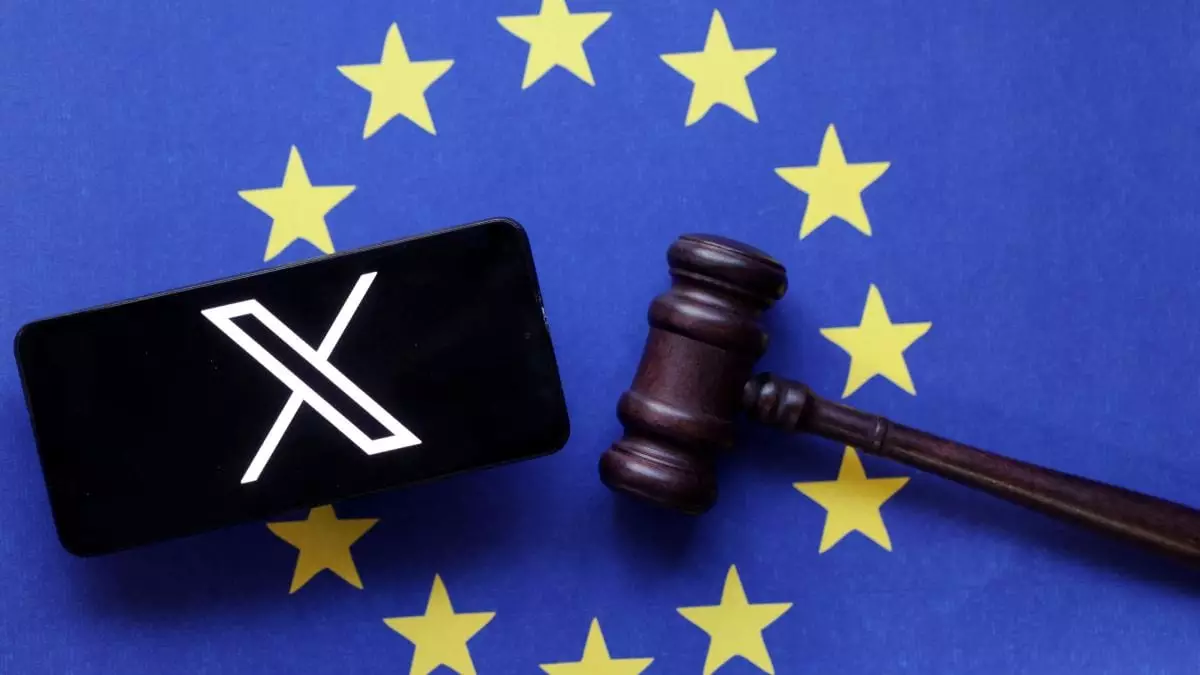Elon Musk’s social media platform, X, currently finds itself at the center of a significant regulatory debate within the European Union (EU). Recently, it has been suggested that the platform may not fall under the stringent restrictions of the Digital Markets Act (DMA). This legislative framework was established to regulate the practices of major tech companies, aiming to foster fair competition and improve the user experience. A source with inside knowledge has indicated that X does not meet the specified criteria to be classified as a “gatekeeper,” which has put its compliance with the new regulations into question.
The EU’s DMA defines a gatekeeper as a business entity boasting over 45 million monthly active users and a staggering market valuation of 75 billion euros (approximately $83 billion). These thresholds are designed to capture the giants of the tech industry that dominate market trends and consumer choices. While X has a large user base, its claim that it does not function as a vital conduit between consumers and businesses allows it to sidestep some of the obligations that accompany gatekeeper status.
The DMA would impose a series of specific requirements on companies designated as gatekeepers. These include mandates for interoperability with rival applications, user choice for pre-installed apps, and prohibitions against self-favoring practices. If X were to be categorized as a gatekeeper, compliance would necessitate significant changes to its operational model, potentially diluting its competitive edge.
This potential exemption from DMA scrutiny could be a double-edged sword for X. On one hand, it frees the platform from immediate regulatory burdens and allows for more flexibility in user engagement strategies. On the other hand, the absence of oversight may invite further scrutiny regarding how the platform manages user data and content, especially considering the rising concern over online safety.
Despite the likelihood that X may evade the DMA’s grip, it is not entirely off the regulatory hook. The recently established Digital Services Act (DSA) is another formidable framework that could significantly impact the platform. The DSA demands that online platforms increase their efforts to eliminate illegal content and protect users from harmful online behavior. Non-compliance can lead to punitive measures, including fines of up to 6% of a company’s global annual revenue.
Currently, X is under investigation as part of the DSA’s enforcement mechanism. This investigation underscores the platform’s ongoing struggle with content moderation and user safety. As public scrutiny of harmful online behavior intensifies, how X navigates these regulatory waters will be critical for its reputation and bottom line.
Ultimately, the trajectory of X within the EU landscape is punctuated by both opportunities and challenges. While the possibility of avoiding DMA constraints may allow for short-term operational flexibility, the platform must anticipate and prepare for heightened oversight under the DSA. As Musk continues to innovate and reshape social media, the balancing act between compliance and user engagement will be pivotal in shaping X’s future in a rapidly evolving regulatory environment.


Leave a Reply
You must be logged in to post a comment.